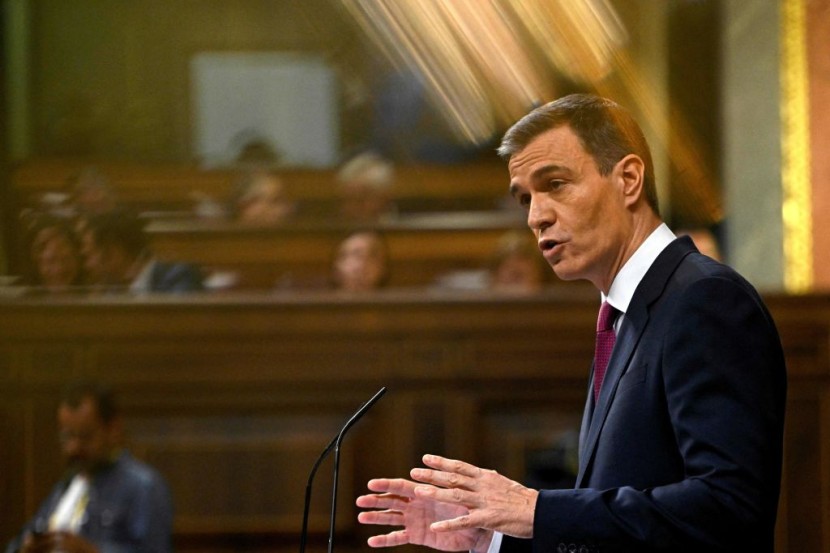Spanish Prime Minister Pedro Sanchez has been re-elected for another term as he plans to form a new government following two failed attempts from right-wing opposition leader Alberto Nunez Feijoo.
Sanchez leads the Spanish Socialist Workers' Party (PSOE) and he was able to win 179 votes in favor and 171 votes against with no abstentions. The development marks the end of a four-month political deadlock following the inconclusive general elections that were held in July.
Pedro Sanchez Wins Prime Minister Re-Election

It was the time when Feijoo's People's Party won a 136 majority of seats while the Socialists were able to get 121 seats. The prime minister himself had called for the vote after his party experienced heavy losses in regional and municipal elections that were held in late May.
Despite Feijoo's party's victory at the snap polls, it failed to garner parliamentary support over two vote attempts to form a new government. This was primarily because of its alliance with the hard-right Vox party, whose views include opposing abortion rights and denying climate change, as per CNBC.
The prime minister's own mandate could prove to be fractious as he has granted numerous concessions in negotiations with parties from Catalonia, Galicia, the Basque Country, and the Canary Islands. These include a deal for a controversial amnesty law for Catalan separatists that was demanded by political parties Junts and Esquerra.
It would absolve hundreds of Catalan separatists who were found to be at fault after the region's secession attempt in 2017. Former Catalan leader Carles Puigdemont, who was in self-imposed exile in Belgium, would stand to benefit from the amnesty law. However, it has triggered widespread protests in Spain by those who do not agree with it.
Hundreds of thousands of Spanish residents took to the streets in order to oppose Sanchez's plan with the Catalan separatists. Detractors have argued that the prime minister's deal was unconstitutional. But for Sanchez, it was a guaranteed path to getting re-elected as prime minister.
Spanish courts have also criticized the proposed amnesty law as a violation of the separation of powers. The situation has prompted European Union officials to watch the developments in Spain nervously.
Read Also : EU Proposes Additional Sanctions Against Russia, Targeting Kremlin's Military, Tech Sectors
Controversial Amnesty Law
In a statement, Feijoo said that he had previously told the Spanish President that he had made a mistake and that he was responsible for his decisions. He argued that the amnesty law is the worst way to begin the legislature, according to the Voice of America News.
On the other hand, Sanchez's government is planning to use tens of millions of dollars that it has left over from the European Union's post-pandemic recovery program to work on various green energy projects.
Roughly two-thirds of Spaniards oppose the amnesty law, as shown in polls and demonstrated by the massive and largely peaceful protests throughout the nation. However, Vox politicians have attended violent protests peppered with extremists outside Socialist Party headquarters.
Feijoo said that Sanchez is the problem, including the latter's supposed inability to keep his word, his lack of moral limits, and his pathological ambition. The opposition leader said that as long as the prime minister is around, the nation will be condemned to division, said the New York Times.
© 2025 HNGN, All rights reserved. Do not reproduce without permission.








